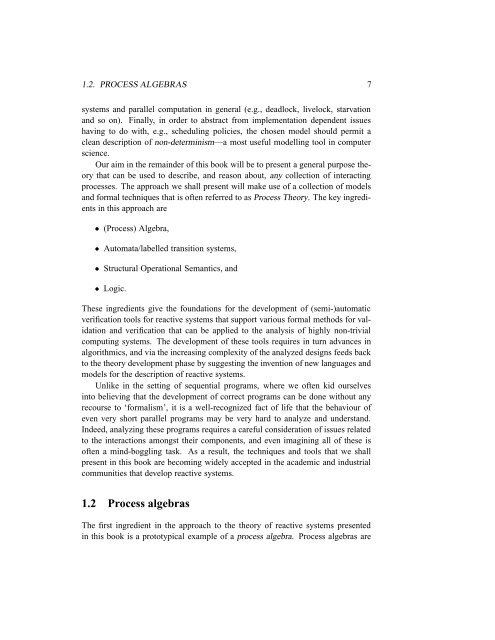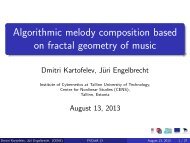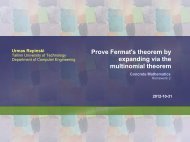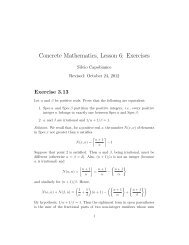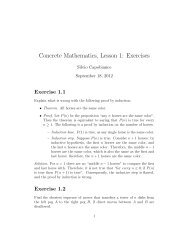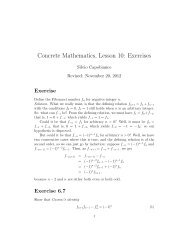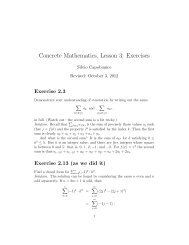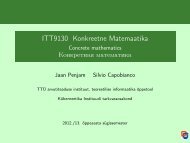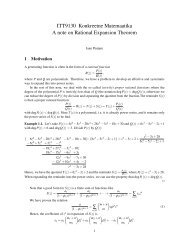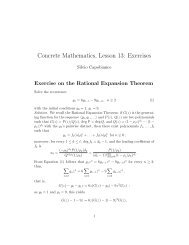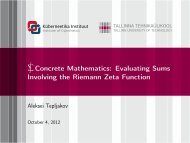Reactive Systems: Modelling, Specification and Verification - Cs.ioc.ee
Reactive Systems: Modelling, Specification and Verification - Cs.ioc.ee
Reactive Systems: Modelling, Specification and Verification - Cs.ioc.ee
Create successful ePaper yourself
Turn your PDF publications into a flip-book with our unique Google optimized e-Paper software.
1.2. PROCESS ALGEBRAS 7<br />
systems <strong>and</strong> parallel computation in general (e.g., deadlock, livelock, starvation<br />
<strong>and</strong> so on). Finally, in order to abstract from implementation dependent issues<br />
having to do with, e.g., scheduling policies, the chosen model should permit a<br />
clean description of non-determinism—a most useful modelling tool in computer<br />
science.<br />
Our aim in the remainder of this book will be to present a general purpose theory<br />
that can be used to describe, <strong>and</strong> reason about, any collection of interacting<br />
processes. The approach we shall present will make use of a collection of models<br />
<strong>and</strong> formal techniques that is often referred to as Process Theory. The key ingredients<br />
in this approach are<br />
• (Process) Algebra,<br />
• Automata/labelled transition systems,<br />
• Structural Operational Semantics, <strong>and</strong><br />
• Logic.<br />
These ingredients give the foundations for the development of (semi-)automatic<br />
verification tools for reactive systems that support various formal methods for validation<br />
<strong>and</strong> verification that can be applied to the analysis of highly non-trivial<br />
computing systems. The development of these tools requires in turn advances in<br />
algorithmics, <strong>and</strong> via the increasing complexity of the analyzed designs f<strong>ee</strong>ds back<br />
to the theory development phase by suggesting the invention of new languages <strong>and</strong><br />
models for the description of reactive systems.<br />
Unlike in the setting of sequential programs, where we often kid ourselves<br />
into believing that the development of correct programs can be done without any<br />
recourse to ‘formalism’, it is a well-recognized fact of life that the behaviour of<br />
even very short parallel programs may be very hard to analyze <strong>and</strong> underst<strong>and</strong>.<br />
Ind<strong>ee</strong>d, analyzing these programs requires a careful consideration of issues related<br />
to the interactions amongst their components, <strong>and</strong> even imagining all of these is<br />
often a mind-boggling task. As a result, the techniques <strong>and</strong> tools that we shall<br />
present in this book are becoming widely accepted in the academic <strong>and</strong> industrial<br />
communities that develop reactive systems.<br />
1.2 Process algebras<br />
The first ingredient in the approach to the theory of reactive systems presented<br />
in this book is a prototypical example of a process algebra. Process algebras are


